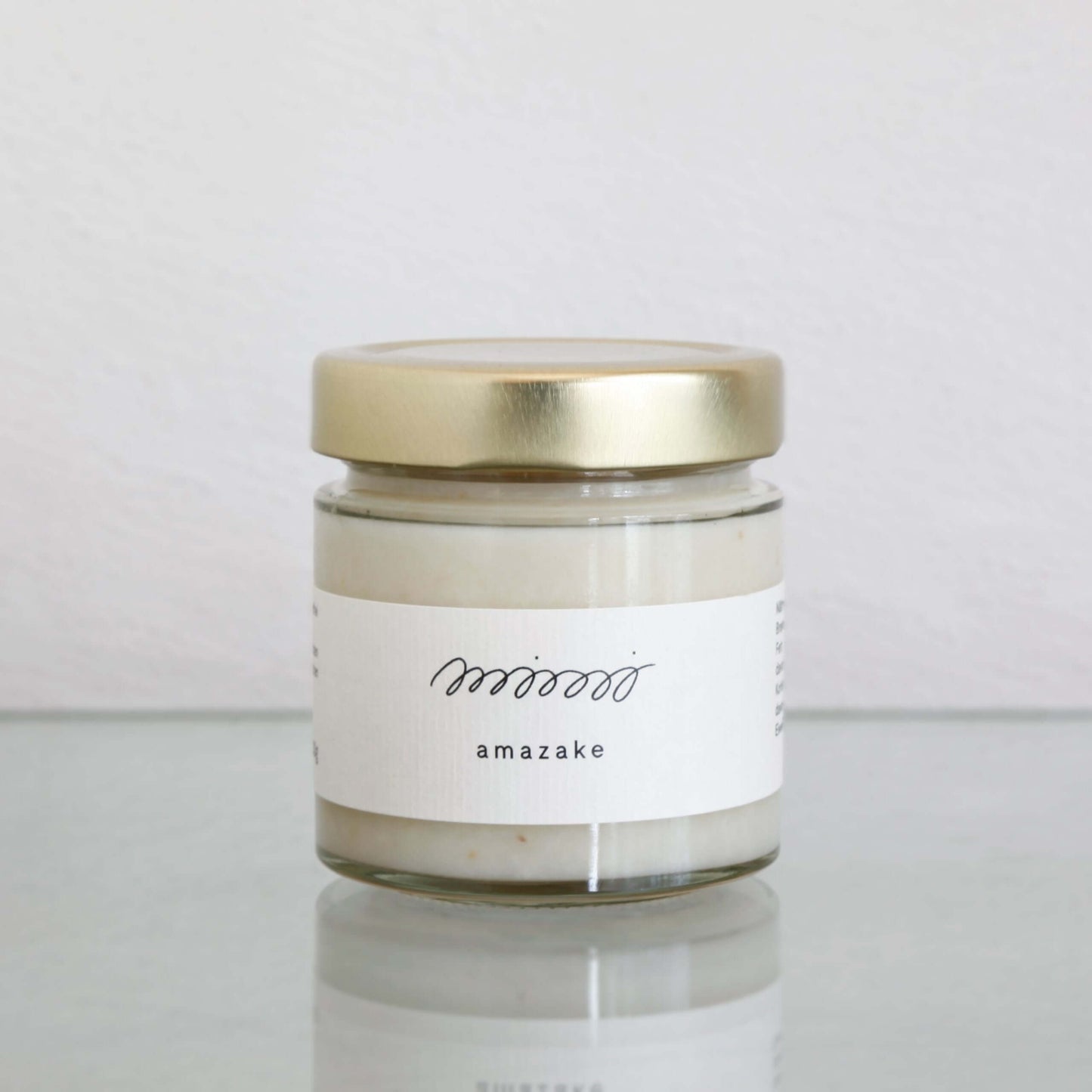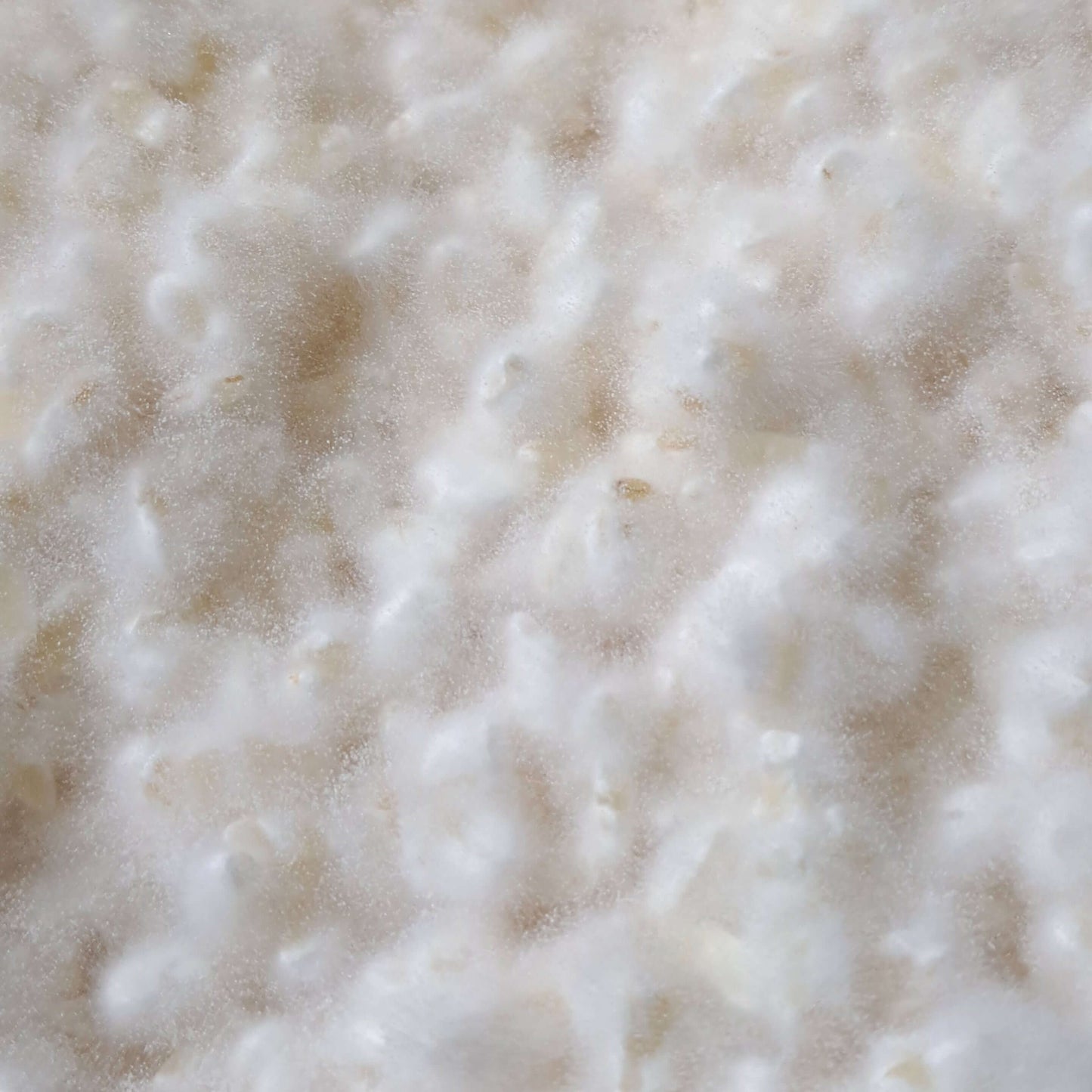Amazake is a fermented drink with a natural sweetness that is produced without the addition of sugar. This traditional Japanese drink is made from rice and water, which are fermented together with koji rice for one day. During the fermentation process, the starch and proteins present in the rice are broken down by the amylase and protease enzymes in the koji rice. This leads to the formation of various sugars, essential amino acids and the splitting off of water.
Koji-based Amazake is alcohol-free, which is why it can be drunk without hesitation by people of all ages, including babies, the elderly and those who cannot tolerate alcohol. The active enzymes, B vitamins and their degradation products contained in Amazake promote digestion both directly and indirectly. The enzymes and B vitamins contained in Amazake directly support the breakdown of food eaten on the same day. Indirectly, Amazake aids digestion through the oligosaccharides it contains. Oligosaccharides and dietary fibres in Amazake are prebiotic food for the intestinal flora and can therefore promote digestion in the long term by building up healthy intestinal flora.
Amazake is also rich in antioxidants. It has twice the amount of free radical scavengers as pomegranates, which are known for their antioxidants. Antioxidants are important for the body to convert free radicals into harmless substances. Free radicals are naturally produced by the metabolism but are also increased by stress, high levels of exercise and adverse environmental factors such as UV radiation, pollutants or infections and lead to premature ageing or disease.
Amazake also contains γ-aminobutyric acid (GABA), an important neurotransmitter that promotes the function of the parasympathetic nervous system and thus reduces feelings of stress, ensures greater relaxation and better sleep. Gamma-aminobutyric acid also helps with muscle tension and cramps and high blood pressure.
Amazake's history goes back over a thousand years and is mentioned in one of Japan's oldest history books, the ‘Nihonshoki’ (日本書紀). There it was celebrated as sweet sake for deities. During the Edo period (1603-1868), amazake enjoyed great popularity as a popular energising drink among the people. In the hot summer months, it was sold cheaply on the streets of Japan. This nutritious, fermented rice porridge strengthened the spirit and helped to maintain bodily functions during the harsh heat months.

